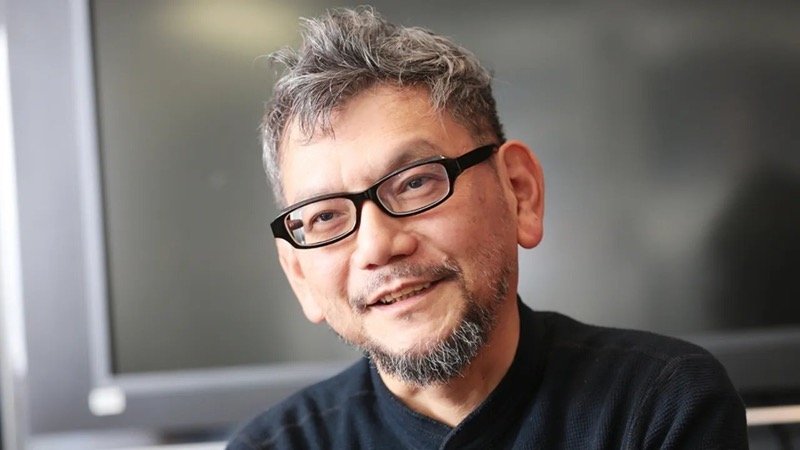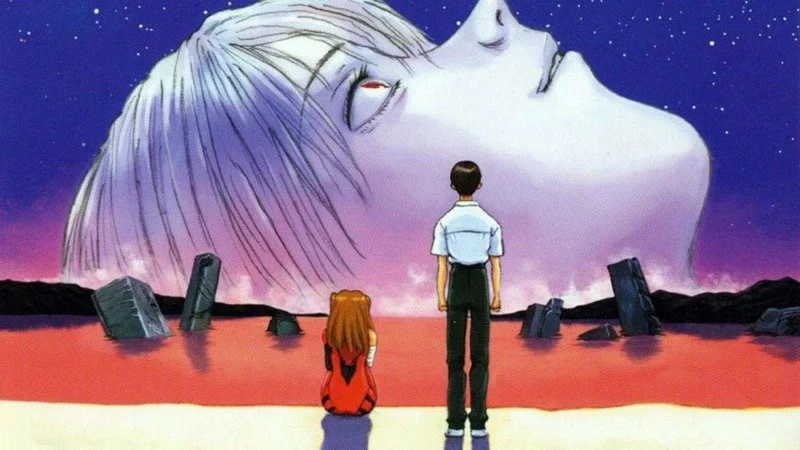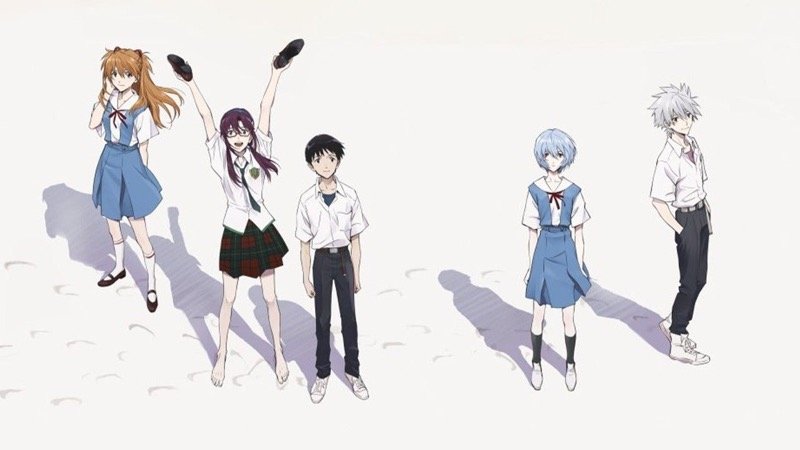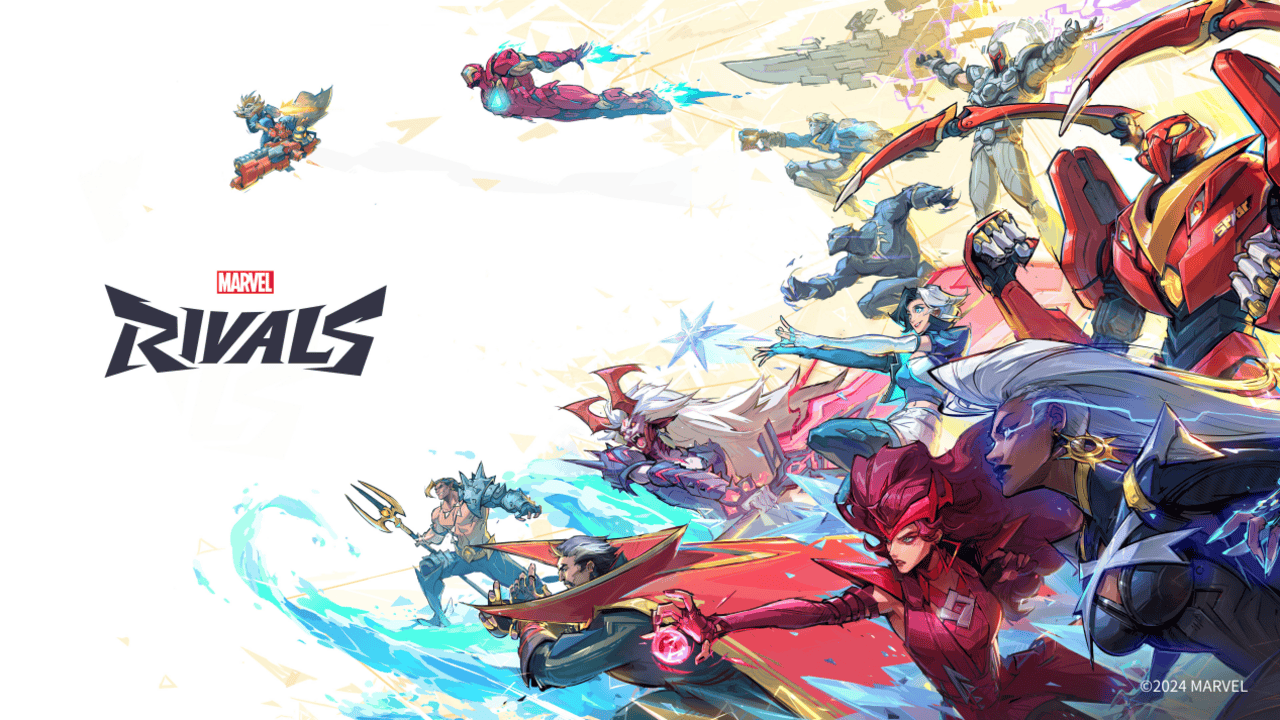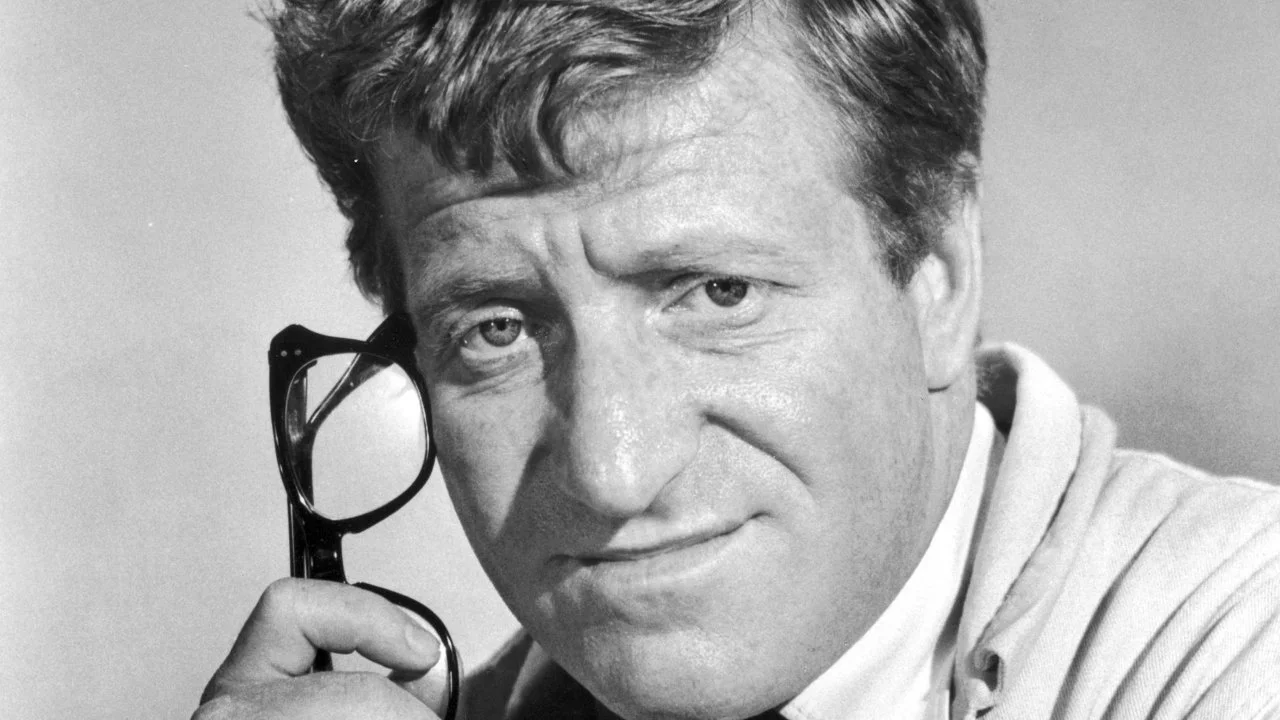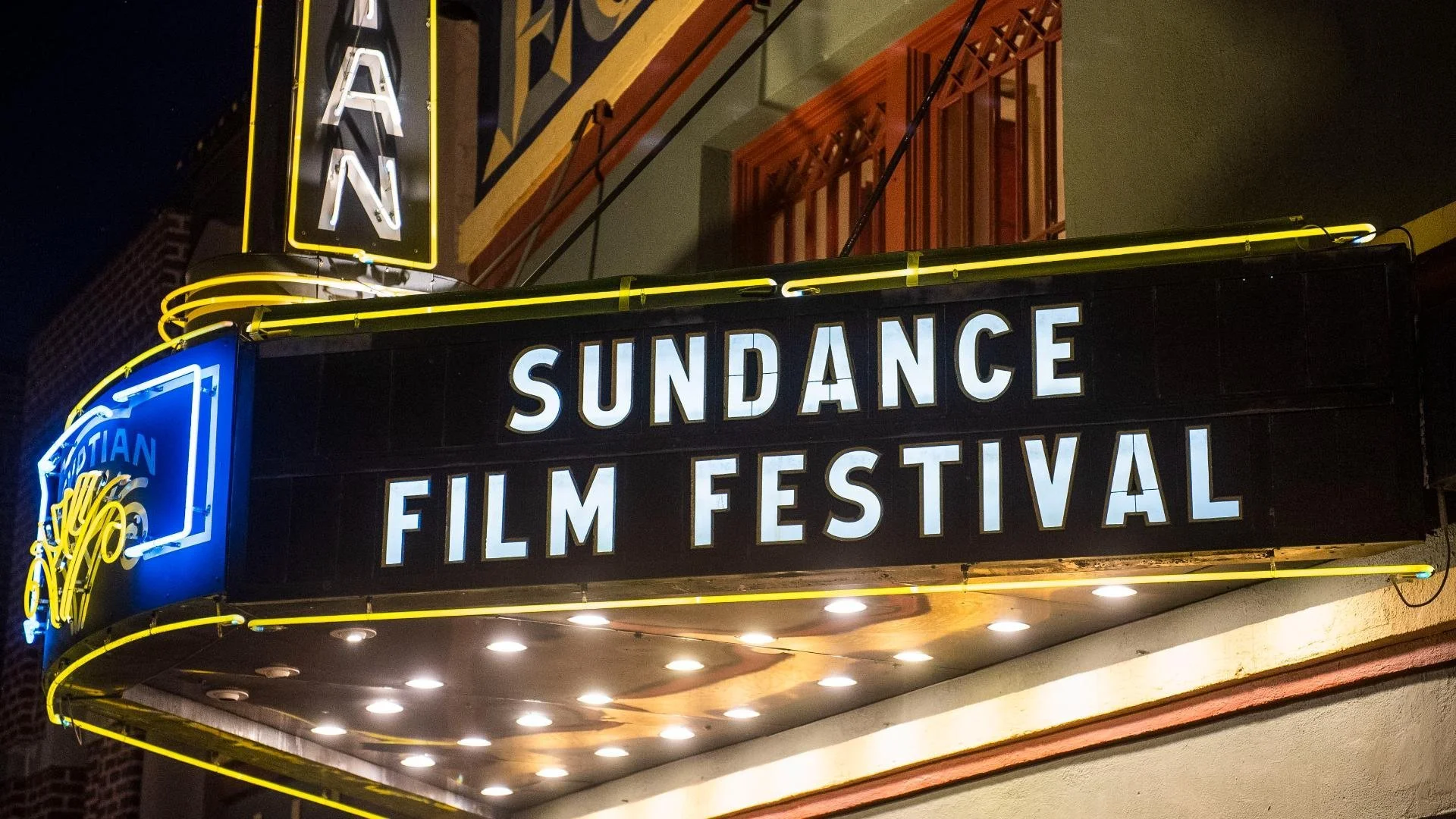'Evengelion': A Restrospective
Image Source: Nippon
A cultural behemoth that inspired generations of creators, an introspective story exploring the depths of the human mind, heart, and soul, the godfather of modern mecha anime and television, spawning countless manga, light novels, movies, videogames, albums, and merchandising to boot, the anime series Evangelion is a true masterpiece of storytelling to behold that has remained relevant after nearly thirty years thanks to its irreverent themes, iconic characters, thrilling action and intense emotion, and a banging soundtrack creating the perfect storm of a series.
The Creator
Image Source: Shonen Jump News (via X)
The Evangelion series is the brainchild of animator and director Hideaki Anno, who had his hands in prior sci-fi works as an animator on Hayao Miyazaki’s Nausicaa of the Valley of the Wind. Before this, he and fellow animators such as Yoshiyuki Sadamoto and Shinji Higuchi founded Daicon Film, where they produced and directed short films such as the Daicon series and Daicon Film’s Return of Ultraman. Daicon Film would eventually become GAINAX, where Anno made his directorial debut with 1989’s Gunbuster a miniseries that drew some inspiration from the 1986 film Top Gun. Gunbuster would be followed up by the 1990 anime Nadia: The Secret of Blue Water, based on a scrapped concept by Hayao Miyazaki based on Jules Verne’s Twenty Thousand Leagues Under the Sea. Hideaki Anno and Shinji Higuchi directed the series, with Yoshiyuki Sadamoto serving as character designer and Shiro Sagisu composing the score. This quartet of creatives continued their creative streak with a concept for a Nadia sequel, which evolved into a new story that would become the 1995 anime Neon Genesis Evangelion.
RELATED:
The Classic Series
Image Source: NewOnNetflixUK (via X)
Neon Genesis Evangelion tells the story of Shinji Ikari, a timid 14-year-old who’s dragged into the battle between mankind and aliens known as Angels, being ordered by his father, Gendo Ikari, and the organization NERV to pilot their latest creation: Evangelion Unit 01. Through each battle he endures immense physical and emotional trauma, seeking the approval of his father and validation from others, navigating his complicated feelings and dwindling mental health over the span of 26 episodes. While Shinji is the main protagonist of the series, he often gets outshined by the rest of the main cast of characters and their struggles, such as Misato Katsuragi, a commanding officer in NERV who serves as Shinji’s legal guardian and becomes something of a parental figure to him (emphasis on the something) despite being ill-suited for such a responsibility, who goes on a quest of her own to uncover the secrets of NERV and its purpose. There’s also Rei Ayanami, the pilot of Eva Unit 00, who deals with an existential crisis throughout the series due to the very nature of her existence as a pilot and a person; her bond with Shinji goes into some weird places due to plot element surrounding her character. Closing out the main cast is Asuka Langley Soryu, the pilot of Eva Unit 02, who is loudmouthed and brash, creating the perfect foil to Shinji’s meekness and Rei’s aloof nature, with a clear superiority complex that makes her arc throughout the series one of the most heartbreaking to watch as she deals with self-loathing and grief.
Neon Genesis Evangelion was a series that truly put its characters through the emotional wringer, as every major victory over the Angels left setbacks for at least one of the main characters, which would then snowball to create problems for the rest of the cast. The series masterfully explores subjects of depression, adolescence, codependency, sexuality, and human nature. Many of its scenes, messages, symbolism, and themes are still debated and theorized about to this day, and that includes the series' original conclusion.
While Neon Genesis Evangelion is a thoughtful and philosophical series, it’s still a mecha anime. However, the series' two-part finale in 1996 would forego a traditional conclusion to resolve the inner turmoil of the characters. While it was emotionally resonant and artistically distinct (likely in part due to time constraints) it wasn’t a proper ending for the series and left plenty of story threads hanging. Thankfully, the series would get its chance to wrap up its story in 1997 with the film The End of Evangelion.
The Movie
Image Source: The Writer Muses
The End of Evangelion is another contentious entry in the series, which is regarded by many as the peak of the series, not only having plenty of the action, emotion, and introspection that the series became known for but also dialing all of these elements up to an 11, with the creative team having more freedom compared to the TV series. This would be a double-edged sword, as the violence was gorier, and many scenes throughout the movie can be genuinely stomach-churning. The disturbing becomes genuinely horrifying as the movie leans further into psychological horror as time goes on, showing off psychedelic imagery that lingers with you for a while. The End of Evangelion is an anime ending that can best be described as unpredictable, as you’re taken on an emotional rollercoaster of death, destruction, and psychological torment without the slightest clue of what comes next. Closing out the series on a somewhat bleak and bizarre note, The End of Evangelion answers a lot of questions and raises even more, and leaves the remaining characters, and the audience more traumatized than they went in, and at least a little grossed out by what they witnessed.
This Is (Not) A Reboot
Image Source: IGN
For a while, Eva fans presumed that the series had come to an end with the 1997 film, but they were in for a surprise when it was announced in 2006 that a new film was in the works. This film was Evangelion 1.0: You Are (Not) Alone. Unlike the previous Eva series and movie which were animated and produced by GAINAX, Evangelion 1.0 was the debut of Studio Khara, Hideaki Anno’s new production company, with Shinji Higuchi, Yoshiyuki Sadamoto and Shiro Sagisu reuniting on its production. The film would be released in Japan the following year, and was a reimagining of the first six episodes of Neon Genesis Evangelion, with updated animation and a more streamlined narrative, and acted as a solid entry point for new fans to enjoy the series. The film also spawned intense marketing and merchandising, from model kits to clothing to plushies, pachinko games, and many more, bringing Evangelion back to pop culture with a vengeance.
The film would be followed up with Evangelion 2.0: You Can (Not) Advance in 2009, which shifted the series into a new direction, introducing new, more powerful angels, re-interpreting the dynamics between characters, and throwing a new Eva pilot in the mix, Mari Makinami Illustrious, who’s been a somewhat polarizing character among fans because of the many mysteries surrounding her character. But one thing can’t be denied: her action sequences brought a new level of unpredictability and energy to battles against the angels. This new path continued with Evangelion 3.0: You Can (Not) Redo in 2012, which brought the biggest changes to the story, and plunged Shinji, Misato, and the rest of the cast further into isolation with what may be one of the most visually stunning Evangelion films out there, even with its darker atmosphere.
After Evangelion 3.0, there was a long period of radio silence on the planned fourth and final Evangelion film, due in part to Anno’s worsening mental health at the time of 3.0’s release. This led to him taking time away from the project, where he wound up directing the 2016 film “Shin Godzilla” alongside Shinji Higuchi. The design for Godzilla, and his rapid evolution throughout the movie drew inspiration from Evangelion, and the score even utilized tracks from the Evangelion series for certain scenes, with Shiro Sagisu having composed the score for this Godzilla film.
In 2019 it was announced that the final Evangelion film, Shin Evangelion would be released in the summer of 2020. However, due to the COVID-19 pandemic, its release date would continue to be pushed back until it is finally released in Japan in March 2021, with the official title Evangelion 3.0+1.0: Thrice Upon a Time. This film is a spiritual (or perhaps literal) successor to both the original series ending and The End of Evangelion, tying up plot threads and delivering both thrilling action and psychedelic imagery while also being a thoughtful and emotionally resonant sendoff for the story and its characters, with Shinji getting one more chance to make things right by himself and his friends, bringing a close to the Evangelion story in a satisfying way. If the original movie was “free depression,” then the third and final ending to the series was the much-needed therapy for the characters, the audience, and perhaps even Anno himself.
The film also settled multiple age-long debates, including whether or not these four films, titled the Rebuild of Evangelion series were a proper reboot of the original anime or a sequel, to which I’ll say to watch and find out.
The Many Dubs Of Evangelion
Image Source: IGN
One thing that has always been a point of discussion for Eva fans is the multiple English casts and dubs the series has had over the years across the original series and the Rebuilds, as well as the strengths and weaknesses of each dub. First and foremost, the original Japanese Dub for both the original series and Rebuilds stars Megumi Ogata as Shinji Ikari, Kotono Mitsuishi as Misato Katsuragi, Megumi Hayashibara as Rei Ayanami, Yuko Miyamura as Asuka Langley-Soryu and Fumihiko Tamichi as Gendo Ikari.
The very first dub for Evangelion, produced by ADV Films in 1996, starred Spike Spencer as Shinji, Allison Keith as Misato, Amanda Winn Lee as Rei, Tiffany Grant as Asuka, and John Swasey as Gendo. The ADV dub is regarded by many as the definitive dub of the series for its witty dialogue and its ability to balance 90s cheese with the more mature elements of the story. Up until recently, this version of the dub was inaccessible to audiences until GKIDs secured the license to this dub for a Blu-ray release in 2021.
When the Rebuilds began to release stateside in 2009, it fell to Funimation to produce the English dub, with Spencer, Keith, Grant and Swasey reprising their roles as Shinji, Misato, Asuka, and Gendo, though Brina Palencia would voice Rei instead of Amanda Winn Lee. Joining the cast would be Trina Nishimura as Mari Makinami Illustrious. Funimation’s dub is considered to be the strongest of the dubs because of its sharp dialogue and the cast having become more experienced in their roles. Sadly, this version of the dub is slowly becoming harder to find as Funimation would lose the rights to the Rebuilds, and physical versions of these dubs are no longer in print, but can still be purchased secondhand.
In 2019, Netflix acquired the streaming rights to the original series, and produced a brand new dub for the series under Studio Khara’s supervision. This dub starred a new cast, with Casey Mongillo as Shinji, Carrie Keranen as Misato, Ryan Bartley as Rei, Stephanie McKeon as Asuka, and Ray Chase as Gendo. This version of the dub would be praised for feeling more natural and faithful to its Japanese counterpart compared to the ADV dub, though many complained that the script, produced by Khara, at times felt abnormal in translation and that queer elements were toned down or altered.
Finally, when the time came for Evangelion 3.0+1.0 to make it’s English Debut in August 2021, it was announced that Amazon had acquired the streaming rights to the Rebuilds, and would be producing a new English dub for all four films. This dub would successfully reunite the main cast of the ADV dub, with Winn Lee reprising her role as Rei, though Deneen Melody would be cast as Mari in these dubs instead of Nishimura. The scripts for Amazon’s dub would also be written by Khara. While fans were ecstatic about the original cast returning, some are critical of some of the rough translations in the script.
The Cultural Impact
Image Source: The Asashi Shimbun
There is no understating just how much of an impact Evangelion has had on pop culture, not only in Japan but internationally. In Japan, the franchise spawned multiple stores, video games, attractions and even it’s own theme park land at one point in time, and even crossovers with other iconic franchises such as Godzilla and Ultraman. In media, countless projects and creators have paid homage to the series domestically and worldwide.
Both My Little Pony: Friendship is Magic and The Owl House briefly include weapons resembling the Lance of Longinus from The End of Evangelion. Additionally, one episode of The Owl House sees the character King wearing a leotard resembling Asuka’s from the episode “Both Of You, Dance Like You Want To Win.”
The end of the Gravity Falls episode “Dipper and Mabel vs the Future” mirrors the cliffhanger ending of Evangelion 2.0. Steven Universe includes many references to scenes such as “Congratulations” from the anime’s finale, and more.
These references and homages don’t stop with animation either. The Mark Romanek film One Hour Photo starring Robin Williams includes a scene where the character Jake finds a Mass Production Eva action figure, describing it as a “good guy,” which is something of a twisted joke among Eva fans. The MP Eva figure actually belonged to Williams’ personal collection. Additionally, in the Jordan Peele movie Nope the alien creature’s design was directly inspired by the angels of Evangelion.
Last, but certainly not least is Guillermo Del Toro’s Pacific Rim, which took many of the base elements of Evangelion’s lore and setup, creating a mecha film that was willing to twist the classic formula to make something different and exciting while paying respects to the media that inspired it.
Make no mistake, Evangelion’s cultural influence has endured for decades, and will likely continue for decades to come. It’s a series that is deeply personal to my heart as a poignant but energetic and thoughtful coming-of-age story that should be on every anime fan’s radar, or better yet, any viewer’s radar. From it’s dynamic and entertaining characters, to its timeless animation, it’s thoughtful moments of introspection and it’s stellar score, Evangelion is a series that has changed my life for both better and worse.
For anyone interested (and brave enough) to see what all the fuss is about, Neon Genesis Evangelion and The End of Evangelion are available to stream on Netflix.The Rebuild of Evangelion series is streaming on Prime Video.
READ NEXT:
Source(s): Slash Film


